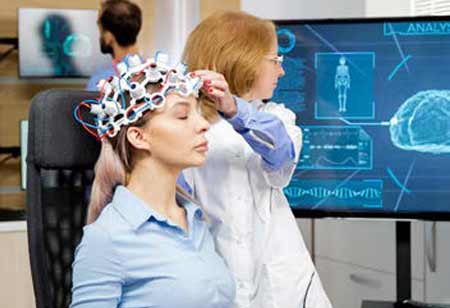Thank you for Subscribing to Healthcare Business Review Weekly Brief
Be first to read the latest tech news, Industry Leader's Insights, and CIO interviews of medium and large enterprises exclusively from Healthcare Business Review
Overcoming Challenges in Neurology for Better Patient Care
Neurology faces challenges in diagnosis, treatment, and accessibility and requires technology, collaboration, and improved systems to ensure timely, effective, and patient-centered neurological care worldwide.

By
Healthcare Business Review | Monday, August 18, 2025
Stay ahead of the industry with exclusive feature stories on the top companies, expert insights and the latest news delivered straight to your inbox. Subscribe today.
Fremont, CA: Neurology is crucial in improving patients' quality of life. Neurological care faces several challenges, including limited access to specialists, complex disease presentations, long diagnostic timelines, and rapidly evolving treatment technologies. Patients with conditions such as epilepsy, Alzheimer's disease, multiple sclerosis, Parkinson's disease, and stroke often require timely intervention, which these barriers can hinder. Overcoming such challenges demands a combination of technological advancements, multidisciplinary collaboration, and improved healthcare infrastructure to ensure accurate diagnosis, effective treatment, and ongoing support for patients.
Key Challenges in Neurology
Neurology is a complex medical field because the nervous system is intricate and complicated to study without advanced tools. One of the main challenges is delayed diagnosis, often caused by subtle or overlapping symptoms that make it hard to pinpoint the exact disorder. Access to neurologists is another hurdle, especially in rural or underdeveloped regions, where patients may wait months for a consultation.
Treatment costs for neurological diseases can be high, putting financial strain on patients and healthcare systems. Rapid advancements in medical technology create another challenge, as healthcare providers must constantly update their skills and knowledge. Neurological research faces limitations due to ethical concerns, high costs, and difficulty replicating brain-related conditions in controlled environments.
Strategies to Overcome Neurological Challenges
Addressing the issues requires a multi-pronged approach. Telemedicine and remote diagnostics can significantly reduce wait times, allowing patients in underserved areas to access specialists more quickly. AI tools can help detect neurological disorders earlier by analyzing brain scans and patient data with high accuracy. Increasing investments in neurological research can lead to a better understanding of mechanisms and the development of new treatments. By participating in these programs, healthcare workers can provide better patient care.
Staying current with innovative techniques and therapies benefits professionals and improves overall health outcomes. Governments and healthcare organizations can introduce policies that make neurological care more affordable and accessible. Public awareness campaigns can encourage early screening and help reduce stigma, enabling more patients to seek help before conditions worsen. Neurology faces multiple challenges, from delayed diagnoses to treatment accessibility, but a combination of technology, education, and policy changes can significantly improve patient outcomes.






